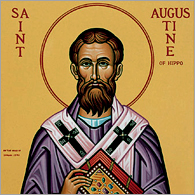 Bob Sungenis has repeatedly stated that the mobility of the earth is the real key to this whole controversy over geocentrism:
Bob Sungenis has repeatedly stated that the mobility of the earth is the real key to this whole controversy over geocentrism:
the historical record shows that it was only Galileo’s insistence that the earth moved that the Church addressed (“Mark Shea and the Ostriches”; emphasis mine.)
And,
But in my article “Geocentrism and the Unanimous Consent of the Fathers“, I cited J. M. Lewis who states:
The eleven [theological experts of the Holy Office] would no doubt have consulted the Fathers of the Church and modern commentators and would have found nothing in them about the motion of the Earth – but they would have found nothing which denied it either (Galileo in France: French Reactions to the Theories and Trial of Galileo, p. 45).
This is now confirmed by a very interesting source. Fr. Melchior Inchofer, S. J. was a vigorous enemy of Galileo who played an important part in the trial and wrote the lengthy Tractatus Syllepticus against Copernicanism. But with respect to the Fathers and the immobility of the Earth he had this to say:
I have not found a single one of the Holy Fathers who has dealt with the motion of the earth clearly and positively, as the saying goes. But from some of them it is possible to deduce a few things that seem relevant here (from R. J. Blackwell, Behind the Scenes at Galileo’s Trial, p. 112.)
But one cannot possibly build an alleged “unanimous consent of the Fathers” out of what none of the Fathers deal with “clearly and positively” and what can at most be “deduced” out of “some of them”. Once again we find that when one looks behind the confident statements of the new geocentrists they just don’t deliver the goods.



